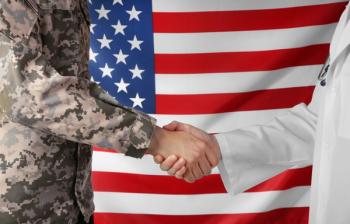
On 9/11 and Trauma Treatment, a Reflection With Christina Ni, MD
Christina Ni, MD, explores the lasting effects of 9/11 on trauma survivors, emphasizing individualized care and the importance of support networks in healing.
Christina Ni, MD, a clinician with extensive experience treating veterans and trauma survivors, reflected on the unique impact of 9/11 and lessons for clinical care. Unlike individual traumas, she emphasized that 9/11 represented a collective trauma, affecting people nationwide regardless of direct exposure.1 Patients often experienced grief, survivor’s guilt, heightened fear, and feelings of loss of security. The historical event’s ongoing presence in the media, annual memorials, and seasonal reminders can trigger trauma symptoms, with some patients noticing increased anxiety and depression each fall.
Ni noted that responses to trauma are highly individualized and nonlinear—some patients show symptoms immediately, while others’ distress surfaces months or even years later. She stressed the importance of longitudinal relationships, consistency, and patience with individuals working through trauma. For example, one 9/11 survivor attended sessions silently for a year before opening up, underscoring the value of simply showing up and building trust.
Ni encouraged clinicians to adopt a whole-person approach, inquiring not just about trauma symptoms but about overall health and life circumstances. Establishing rapport reduces stigma and shame, making patients more willing to engage in therapy and medication management. Ni also highlighted the role of support networks—family, peer groups, and communities—in fostering resilience and accountability.2
She also recommended practical strategies such as grounding techniques, reframing negative narratives, and preparing patients for potential anniversary triggers. Ultimately, she urged clinicians to combine patience, empathy, and consistency, recognizing each patient’s unique healing trajectory in the aftermath of collective trauma like 9/11.
Dr Ni is board-certified psychiatrist and Interventional Psychiatry Medical Director with Mindpath Health in Southern California.
References
1. North CS, Barney CJ, Pollio DE.
2. Calhoun CD, Stone KJ, Cobb AR, et al.
Newsletter
Receive trusted psychiatric news, expert analysis, and clinical insights — subscribe today to support your practice and your patients.







